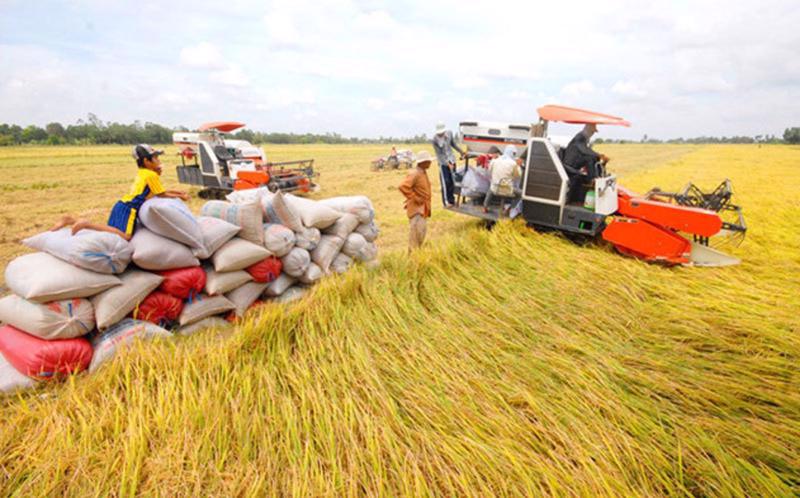At a working session on June 29 among the Ministry of Planning and Investment, the Ministry of Agriculture and Rural Development (MARD) and Mekong Delta localities on the use of World Bank (WB) loans to support the implementation of the project to develop 1 million hectares of specialized rice cultivation with high quality and low emissions associated with green growth in the Mekong Delta region, an official from the MARD estimated that Vietnam will need about $2.7 billion to implement the project from now to 2030, according to a report from the Vietnam News Agency (VNA).
Mr. Ton That Son Phong, deputy head of the MARD’s management board of agricultural projects, was quoted by VNA as saying that the need to soon mobilize resources from international organizations, given the lack of domestic resources.
To this goal, the MARD has proactively worked with many international organizations such as the WB, the Asian Development Bank (ADB), the SNV Netherlands Development Organization, and the International Rice Research Institute (IRRI). To date, the WB has committed to providing loans and technical assistance, while the IRRI and several other organizations have pledged to provide technical support.
Based on the WB's commitment, representatives from the MARD, other ministries and sectors, and 13 centrally-run localities in the Mekong Delta, including Can Tho city, have directly worked with the WB and domestic and international experts to complete a draft project on infrastructure and technical support for high-quality, and low-emission rice farming in the region. The draft project is expected to be submitted to the Prime Minister for consideration and approval in the third quarter of 2024. Its investment is estimated at $430 million, of which $330 million will be financed by loans from the World Bank.
Mr. Cao Thang Binh, a senior expert of the WB, was also quoted by the news agency as saying that Vietnam is at a golden time to implement the project of 1 million hectares of high-quality rice, and this is a way for the country to promote and reposition the Vietnamese rice brand, its responsibility for rice production, and raise its position in the world.
According to Mr. Binh’s preliminary calculations, if the investment for the whole project is about $1 billion, it will generate a profit of about $4 billion. It will also cut down production costs and fertilizers by about 30%.
The project to develop 1 million hectares of specialized rice cultivation with high quality and low emissions associated with green growth in the Mekong Delta region was approved by the Prime Minister on November 27, 2023.
It is part of efforts to restructure the region's production system and value chain with a focus on sustainable farming practices, higher product value, greater business and production efficiency, as well as improved livelihoods of rice farmers, in accordance with Vietnam's commitment to protect the environment, adapt to climate change and reduce greenhouse gas emissions.









 Google translate
Google translate